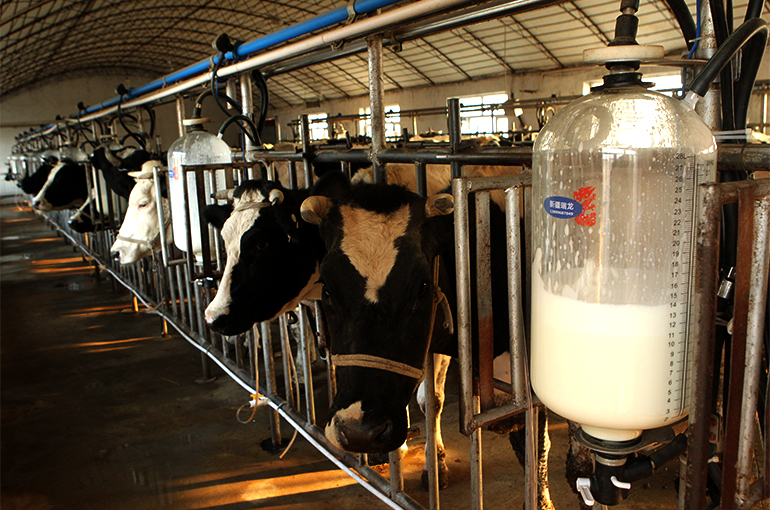 China’s Fresh Milk Supply Glut Continues Despite Tumbling Imports on High Overseas Prices
China’s Fresh Milk Supply Glut Continues Despite Tumbling Imports on High Overseas Prices(Yicai) May 9 -- China's raw milk sector continues to battle with oversupply, despite a big jump in the auction price of international dairy products propelling demand for locally produced milk.
The price of whole milk powder, which is a desiccated form of fresh milk used in many dairy products, climbed 2.4 percent in the latest GlobalDairyTrade auction on May 7 to USD3,350 per ton, according to New Zealand dairy giant Fonterra's auction platform which holds auctions twice a month. The price has climbed for four auctions in a row now, after sinking to a low of USD2,548 per ton in August last year.
But as demand stays weak, China’s milk powder imports are tumbling. Imports of milk powder slumped 9.3 percent in the first quarter from a year earlier to 223,000 tons, according to data from the Dairy Association of China. And the value plunged 24.7 percent to CNY740 million (USD102.4 million) as prices slumped 16.9 percent to USD3,293 per ton.
A number of food processing firms in southern China have started using locally produced milk powder rather than imports due to the rising prices, Song Liang, an independent dairy industry analyst, told Yicai. This will help digest the inventory of Chinese dairy products but will be of limited help to the raw milk sector.
But despite the drop in imports, the market continues to be flooded with raw milk due to ever increasing supply.
China's milk output increased 5.1 percent in the first quarter, according to the National Bureau of Statistics.
Large milk producing areas such as eastern Shandong province logged a 10.7 percent jump in output in the first three months from a year earlier, and last year capacity increased 8.3 percent year on year. This caused milk prices to sink 4.8 percent to CNY3.55 (USD0.49) per kilogram as of March 31 from the start of the year.
Since January, a number of large ranches with a capacity of over 10,000 cows, which were commissioned several years ago when the market peaked, have opened or are close to being finished in the northeast and northwest of the country, Yicai learned. This means that even as more small and medium-sized ranches are forced to close down due to the sliding prices, there is still an oversupply.
As many of the smaller ranches collapse, there could be a reversal in the balance of raw milk supply and demand in the second half, Song said.
Editors: Tang Shihua, Kim Taylor